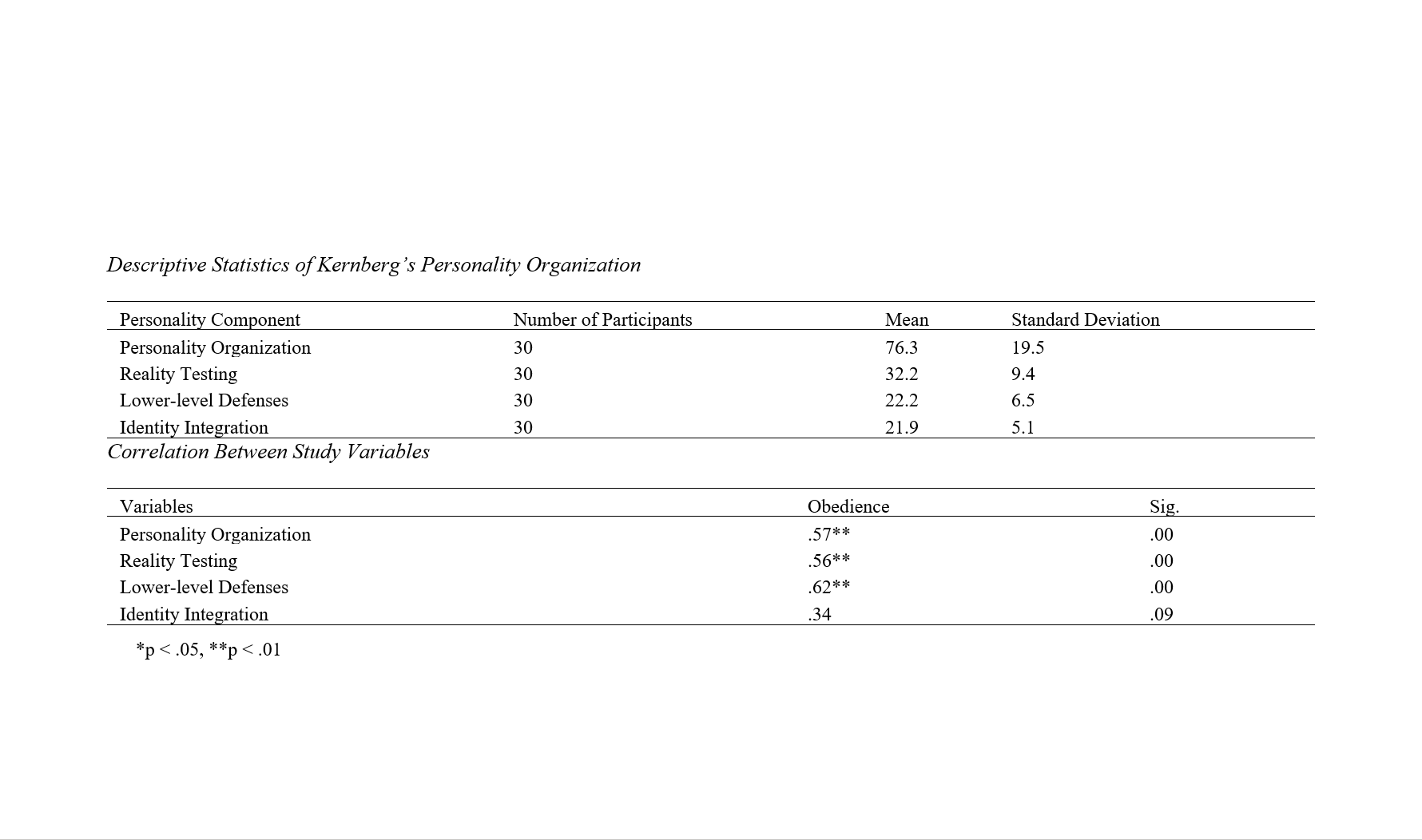Investigating the Relationship Between Kernberg's Personality Organization and Obedience to Authority
Keywords:
Obedience to authority, Stanley Milgram, Kernberg's personality organizationAbstract
Objective: This study aimed to investigate the relationship between Kernberg's personality organization and obedience to authority.
Methodology: The present research is fundamental in terms of its objective and utilizes a mixed-methods approach (qualitative-quantitative) in terms of methodology. The statistical population included all undergraduate psychology students at the Islamic Azad University, Kermanshah Branch, in the 2022-2023 academic year. A convenience sampling method was used to select a class of 30 psychology students as the sample. The quantitative phase of the study was descriptive-correlational, while the qualitative phase employed qualitative content analysis. Spearman's correlation test was conducted using SPSS version 26. Data from the interviews were analyzed using MAXQDA 2022, and categorization was based on thematic analysis. Validity was assessed through respondent validation, and the coding reliability achieved a Kappa coefficient of 0.62. Data collection tools included semi-structured interviews, Kernberg's Personality Organization Inventory, and a researcher-made questionnaire.
Findings: The results of the correlation test indicated a positive and significant correlation at the 99% confidence level between the variables of obedience and the components of personality, lower-level defenses, reality testing, and personality organization. Additionally, thematic analysis identified eight factors underlying obedience and disobedience: guilt, inner conflict, adherence to inner values, absence of inner conflict, respect for authority, the authority's request, trust in authority, and fear of punishment.
Conclusion: It can be concluded that the diversity in obedience and disobedience to authority cannot be explained solely by environmental stimuli. Instead, the interaction between environmental and personality stimuli determines individuals' responses to authoritative commands.
Downloads

Downloads
Additional Files
Published
Submitted
Revised
Accepted
Issue
Section
License
Copyright (c) 2024 Smaeil Namdari, Karim Afsharineya, Keyvan Kakabraee, Mokhtar Arefi (Author)

This work is licensed under a Creative Commons Attribution-NonCommercial 4.0 International License.
























